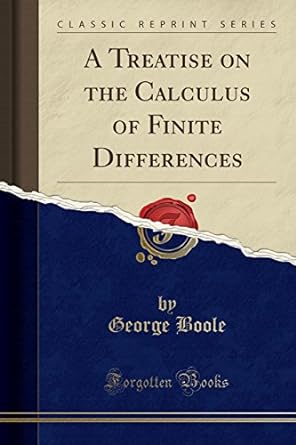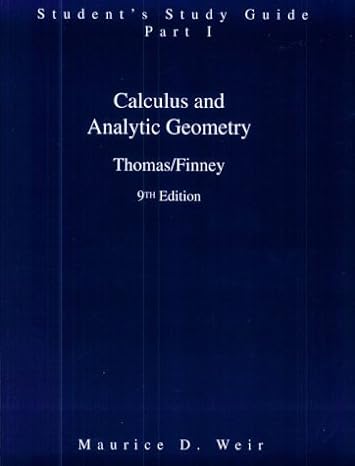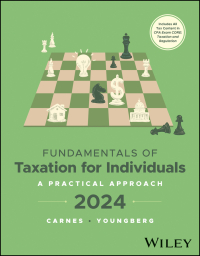Go back


A Treatise On The Calculus Of Finite Differences(1st Edition)
Authors:
B. Boole

Cover Type:Hardcover
Condition:Used
In Stock
Shipment time
Expected shipping within 2 DaysPopular items with books
Access to 30 Million+ solutions
Free ✝
Ask 50 Questions from expert
AI-Powered Answers
✝ 7 days-trial
Total Price:
$0
List Price: $33.95
Savings: $33.95(100%)
Solution Manual Includes
Access to 30 Million+ solutions
Ask 50 Questions from expert
AI-Powered Answers
24/7 Tutor Help
Detailed solutions for A Treatise On The Calculus Of Finite Differences
Price:
$9.99
/month
Book details
ISBN: 1440059004, 978-1440059001
Book publisher: Forgotten Books
Get your hands on the best-selling book A Treatise On The Calculus Of Finite Differences 1st Edition for free. Feed your curiosity and let your imagination soar with the best stories coming out to you without hefty price tags. Browse SolutionInn to discover a treasure trove of fiction and non-fiction books where every page leads the reader to an undiscovered world. Start your literary adventure right away and also enjoy free shipping of these complimentary books to your door.
Book Summary: ( 4 ) CHAPTER II. direct theorems of finite differences. 1. The operation denoted by A is capable of repetition. For the difference of a function of x, being itself a function of x, is subject to operations of the same kind. In accordance with the algebraic notation of indices, the difference of the difference of a function of x, usually called the second difference, is expressed by attaching the index 2 to the symbol A. Thus AAws= AX- In like manner AAX = AX, and generally AA"~X = AX (1), the last member being termed the nth difference of the function ux. If we suppose ux = »3, the successive values of ux with their successive differences of the first, second, and third orders will be represented in the following scheme: Values of X 1 2 3 4 5 6 . 1 8 27 64 125 216 At*. 7 19 37 61 91 ... AX 12 18 24 30... AX 6 6 6... It may be observed that each set of differences may either be formed from the preceding set by successive subtractions in accordance with the Table of Contents
Customers also bought these books
Frequently Bought Together
Top Reviews for Books
Lorissa Talavera
( 5 )
"Delivery was considerably fast, and the book I received was in a good condition."










